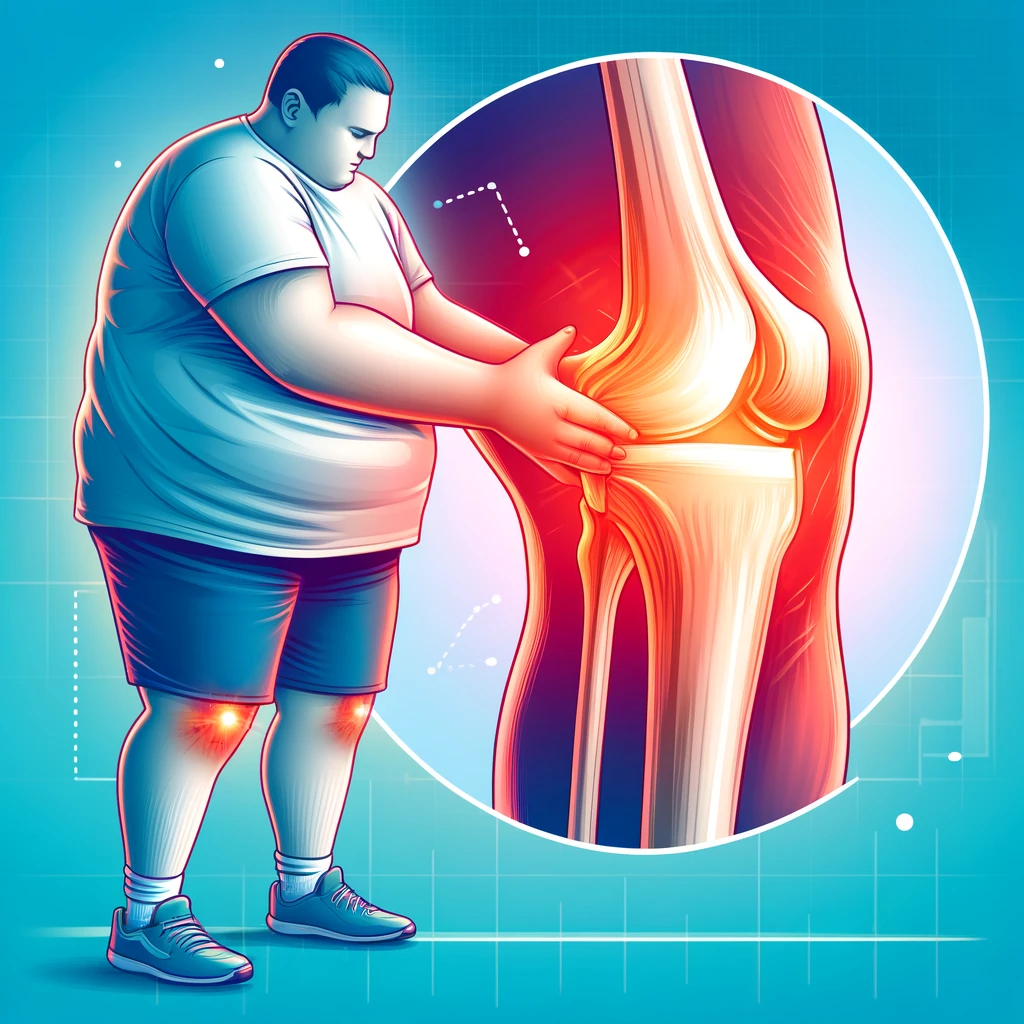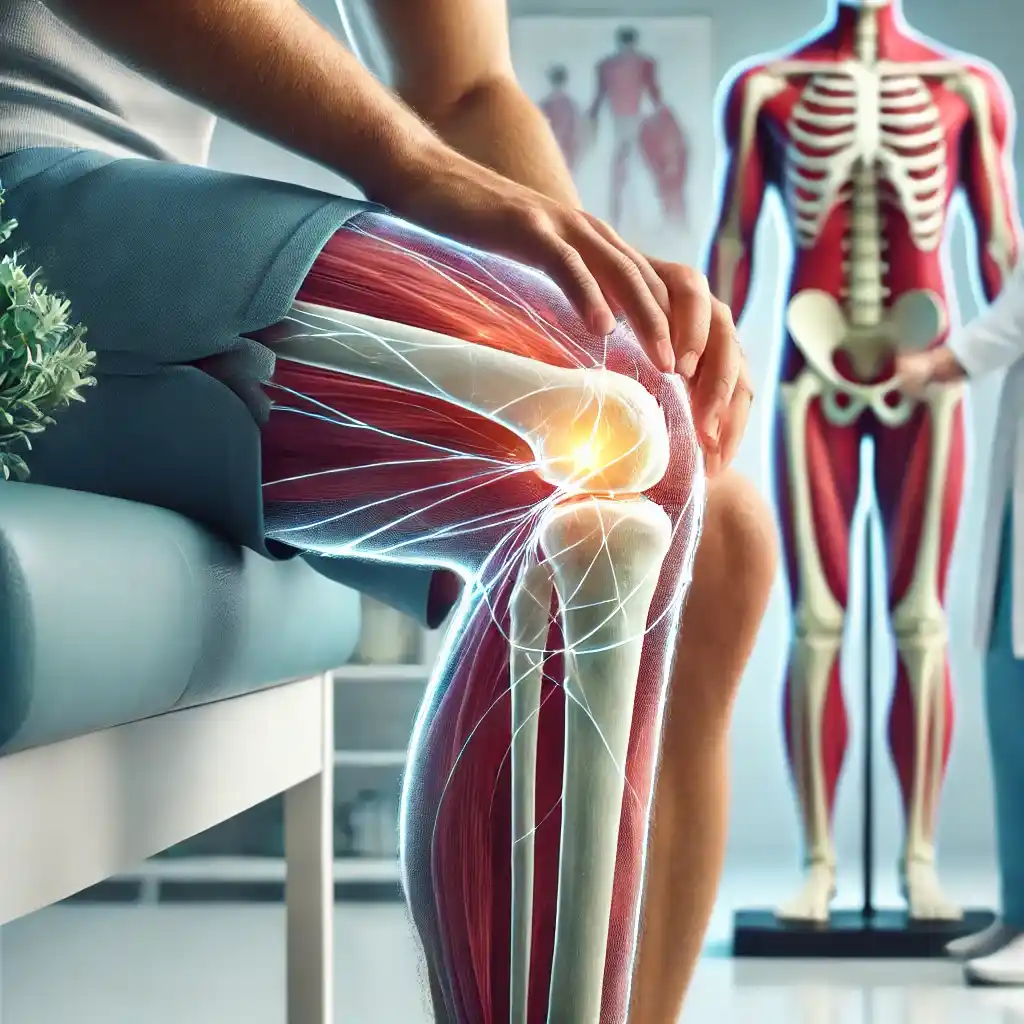
Table of Contents
Obesity is a growing concern worldwide, with significant implications for overall health. While much attention is given to its impact on cardiovascular health and diabetes, the strain it places on the joints is often overlooked. Carrying excess weight increases the mechanical load on joints, particularly those that bear weight, such as the knees and hips. This added stress can accelerate the wear and tear on cartilage, leading to conditions like osteoarthritis. Furthermore, obesity-related inflammation can exacerbate joint pain and contribute to the deterioration of joint tissues. Understanding the relationship between obesity and joint health is crucial for developing effective strategies to alleviate pain, improve mobility and enhance the quality of life for those affected. In this article, we will explore how obesity impacts joint health, the underlying mechanisms and the steps you can take to protect your joints and maintain a healthy weight.
Understanding Obesity
What is Obesity?
Obesity is a condition characterized by excessive body fat. It’s typically measured using the Body Mass Index (BMI), with a BMI of 30 or higher classified as obese.
Causes of Obesity
Obesity can result from a combination of factors, including genetics, lifestyle choices and underlying health conditions. Poor diet and lack of physical activity are the most common culprits.
Prevalence of Obesity
Obesity rates have skyrocketed globally, affecting millions of people. This increase has led to a surge in obesity-related health issues, including joint problems.
Overview of Joint Health
Anatomy of Joints
Joints are the connections between bones that allow for movement. They are composed of cartilage, synovial fluid, ligaments and tendons, each playing a crucial role in joint function and health.
Common Joint Issues
Common joint problems include osteoarthritis, rheumatoid arthritis and gout, all of which can cause pain, stiffness, and reduced mobility.
Importance of Maintaining Healthy Joints
Healthy joints are essential for mobility and overall quality of life. Preventing joint issues can lead to a more active, pain-free life.
How Obesity Affects Joint Health
Increased Load on Joints
Excess weight places additional stress on weight-bearing joints, such as the knees and hips. This increased load accelerates the wear and tear of cartilage, leading to osteoarthritis.
Inflammation and Obesity
Obesity is associated with chronic low-grade inflammation, which can contribute to joint pain and degeneration. Fat tissue produces inflammatory cytokines that can damage joint tissues.
Hormonal Changes
Hormonal imbalances caused by obesity can affect joint health. For instance, leptin, a hormone produced by fat cells, can promote inflammation and cartilage degradation.
Common Joint Issues Linked to Obesity
Osteoarthritis
Osteoarthritis is a degenerative joint disease characterized by the breakdown of cartilage. Obesity is a major risk factor due to the increased mechanical load and inflammation.
Rheumatoid Arthritis
Although not directly caused by obesity, rheumatoid arthritis can be exacerbated by excess weight, which increases the overall inflammatory burden on the body.
Gout
Gout is a form of arthritis characterized by sudden, severe attacks of pain, swelling and redness in the joints. Obesity increases the risk of developing gout due to higher levels of uric acid in the blood.
Symptoms of Joint Problems Due to Obesity
Pain and Stiffness
Pain and stiffness are the most common symptoms, often worsening with activity and improving with rest.
Swelling
Swelling occurs due to inflammation in the joint, leading to discomfort and reduced range of motion.
Reduced Mobility
Reduced mobility is a significant concern as joint pain and stiffness limit daily activities and overall quality of life.
Risk Factors for Joint Issues in Obese Individuals
Age
Age is a natural risk factor for joint problems, with the likelihood increasing as one gets older.
Sedentary Lifestyle
A sedentary lifestyle contributes to obesity and weakens muscles that support joints, exacerbating joint problems.
Genetic Predisposition
Genetics play a role in both obesity and joint health, influencing the susceptibility to joint issues.
Preventive Measures
Weight Management
Maintaining a healthy weight is crucial for reducing the strain on joints and preventing joint issues.
Exercise
Regular exercise strengthens muscles around the joints, improves flexibility and reduces inflammation.
Healthy Diet
A balanced diet rich in anti-inflammatory foods can support joint health and aid in weight management.
Role of Diet in Joint Health
Anti-inflammatory Foods
Foods like fatty fish, leafy greens, and berries can help reduce inflammation and protect joint health.
Foods to Avoid
Processed foods, sugary drinks, and excessive red meat can increase inflammation and worsen joint pain.
Supplements for Joint Health
Supplements such as glucosamine, chondroitin, and omega-3 fatty acids can support joint health and reduce symptoms.
Exercise and Joint Health
Low-Impact Exercises
Activities like swimming, cycling, and walking are gentle on the joints while providing cardiovascular benefits.
Strength Training
Strength training builds muscle around the joints, providing better support and reducing the risk of injury.
Flexibility Exercises
Yoga and stretching exercises improve flexibility, balance and joint function.
Medical Interventions
Medications
Anti-inflammatory medications and pain relievers can help manage symptoms of joint issues.
Surgical Options
In severe cases, surgical interventions such as joint replacement may be necessary to restore function and relieve pain.
Physical Therapy
Physical therapy can help improve joint function, reduce pain, and enhance mobility through targeted exercises and treatments.
Living with Joint Issues
Pain Management Techniques
Techniques such as hot and cold therapy, acupuncture and massage can help manage joint pain.
Assistive Devices
Devices like braces, canes, and orthotics can provide support and reduce strain on affected joints.
Lifestyle Adjustments
Making lifestyle adjustments, such as modifying activities and using ergonomic tools, can help manage joint issues effectively.
Conclusion
Understanding the impact of obesity on joint health is essential for prevention and management. By adopting a healthy lifestyle, maintaining a balanced diet and engaging in regular exercise, individuals can significantly improve their joint health and overall well-being.
FAQs
Can losing weight improve joint health?
Yes, losing weight can significantly reduce the strain on joints, alleviate pain and improve mobility.
What exercises are best for joint health?
Low-impact exercises such as swimming, cycling and walking are excellent for joint health. Strength training and flexibility exercises are also beneficial.
How quickly can one see improvement in joint health after losing weight?
Improvements in joint health can be seen within a few weeks to months, depending on the extent of weight loss and the severity of joint issues.
Are there any foods that worsen joint pain?
Yes, processed foods, sugary drinks, and excessive red meat can increase inflammation and worsen joint pain.
What role do genetics play in joint health?
Genetics can influence susceptibility to joint issues, with some individuals being more prone to conditions like osteoarthritis and rheumatoid arthritis.



